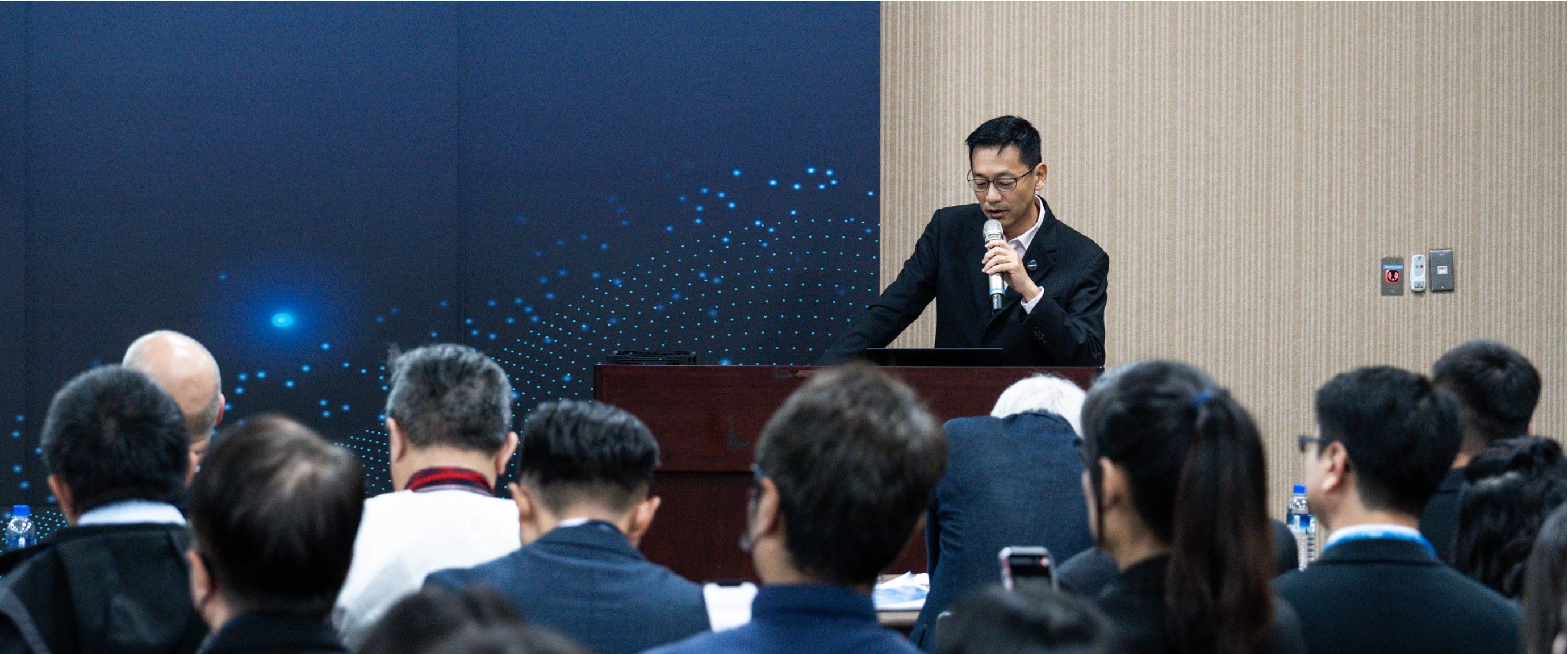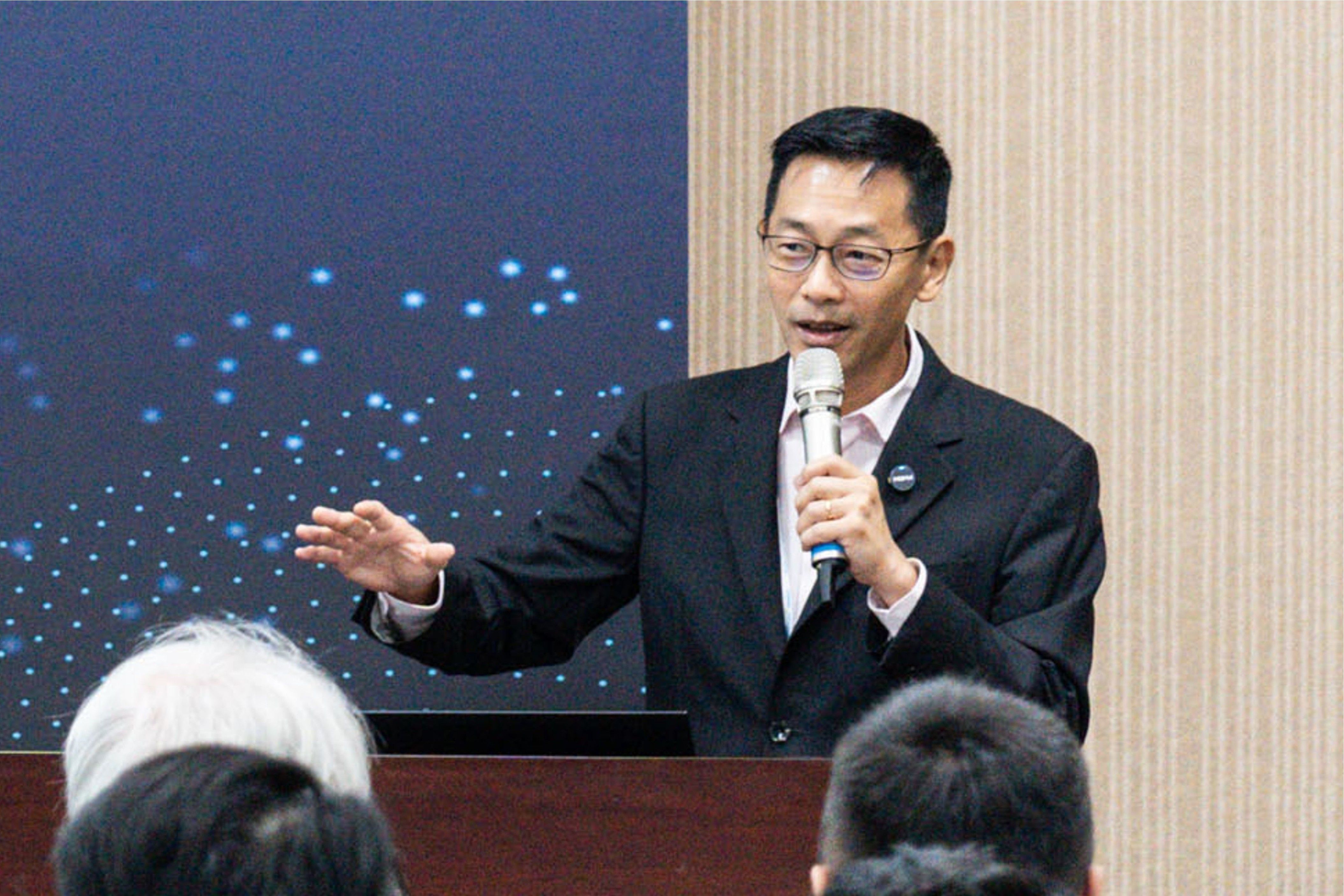
MACGT Vice President Visits Healthcare+ Expo Taiwan, Calls for Bilateral Partnership to Strengthen ASEAN’s Cell and Gene Therapy Ecosystem
2025-07-12
📣Unlock New BioTech Partnerships in Asia!
【2025 Registration Opens Now ▸ https://ibmi.pse.is/7mn2dd 】
With global populations aging and medical technology advancing rapidly, regenerative medicine has become a new frontier for the international healthcare industry. Demand for cell and exosome therapies is surging, driving the global cell therapy market’s rapid expansion. Malaysia, recognizing this trend, is experiencing robust growth in its own regenerative medicine sector, propelled by improved regulatory frameworks and strong public-private collaborationered, data-driven, and highly connected smart healthcare system to improve service efficiency and accessibility.
Seizing this momentum, James Then Khong Lek, Vice President of the Malaysian Association for Cell and Gene Therapy (MACGT), visited Taiwan to explore collaboration opportunities with its biotech sector, aiming to position Malaysia and Taiwan at the forefront of Southeast Asia’s regenerative medicine landscape.

James Then Khong Lek, Vice President of the Malaysian Association for Cell and Gene Therapy (MACGT), visited 2024 Healthcare+ Expo Taiwan, aiming to position Malaysia and Taiwan at the forefront of Southeast Asia’s regenerative medicine landscape.
Malaysia's Burgeoning Cell Therapy Market: Poised for Strong Growth
Malaysia’s cell therapy market was valued at US$84.03 million in 2023 and is projected to reach US$275.86 million by 2032, with a compound annual growth rate of 14.12%. This growth is fueled by breakthroughs in stem cell research and 3D bioprinting, as well as rising demand from aging populations and chronic disease patients. These advances are moving cell therapies from the lab to clinical practice, with applications in tissue reconstruction, burn repair, and cartilage regeneration. Joint investments from both government and private sectors are also helping Malaysia emerge as a potential hub for regenerative medicine in Southeast Asia.
Regulatory Alignment and Partnership Opportunities Highlighted at Healthcare+ Expo Taiwan
Mr. James Then’s appearance at the 2024 Healthcare+ Expo Taiwan drew significant attention. He shared the latest developments in Malaysia’s cell and gene therapy sector and focused on regulatory comparisons and integration with Taiwan, seeking to build a new platform for bilateral industry exchange. As a technical working group member of Malaysia’s National Pharmaceutical Regulatory Agency (NPRA), Mr. Then noted that Malaysia established its cell and gene therapy product (CGTP) regulatory framework five years ago and plans to release an updated version next year, aiming for regional leadership within ASEAN.
Interestingly, Mr. Then observed that Taiwan’s regulatory approach is more granular, distinguishing between autologous and allogeneic cell therapies, while Malaysia currently classifies them together-highlighting differences in regulatory philosophy and potential areas for mutual learning and collaboration.

Mr. James Then shares insights on Malaysia’s cell and gene therapy regulatory framework and explores collaboration opportunities with Taiwan at the 2024 Healthcare+ Expo Taiwan.
Malaysia Aligns with International Standards and Looks to Taiwan for Regional Leadership
Mr. Then emphasized that Malaysia’s regulatory system distinguishes between high- and low-risk cell and gene therapy products, referencing guidance from the US FDA and EU EMA, and drawing on Japan’s conditional approval model to accelerate access to urgently needed therapies. MACGT, comprising nine member companies, works closely with the government to update regulations, implement industry policies, and advance the market. Mr. Then’s visit to Taiwan underscores Malaysia’s strong interest in and commitment to partnership in regenerative medicine.
He hopes this trip marks the beginning of deeper Malaysia-Taiwan collaboration, creating a win-win scenario for both countries’ biotech and healthcare sectors. With the region’s market projected to grow rapidly and both countries investing in innovation and regulatory harmonization, there is significant potential for Malaysia and Taiwan to co-create a new hub for regenerative medicine in Southeast Asia.